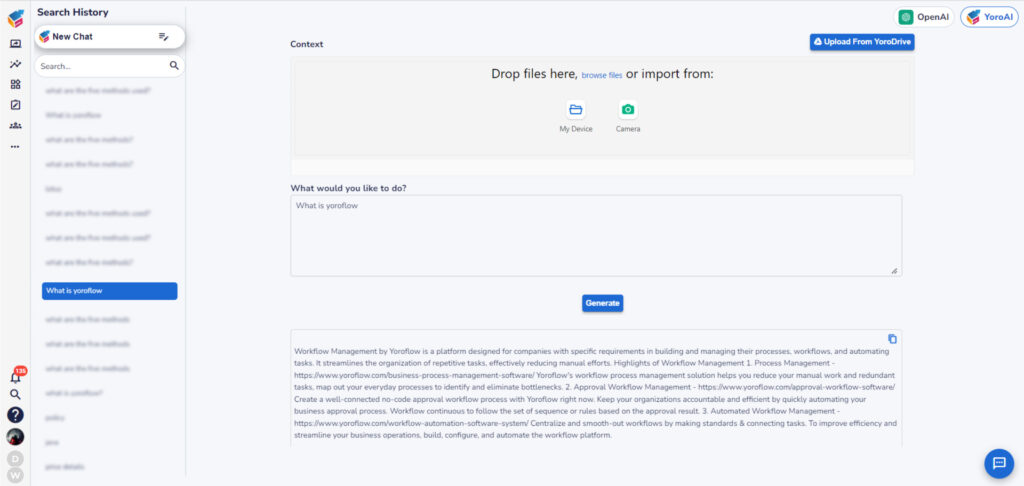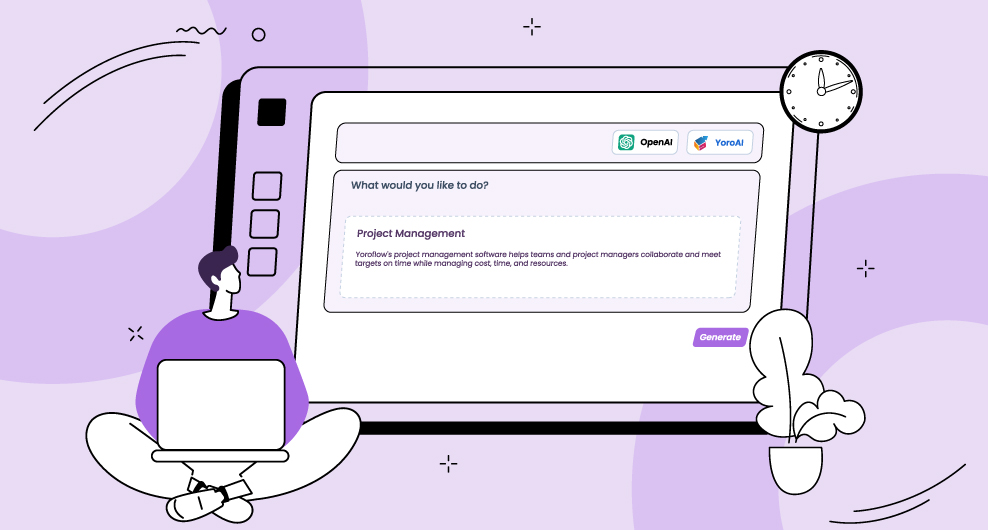Table of Contents
One hundred million people use ChatGPT each week, according to OpenAI via The Verge. While generative AI has generated widespread business interest, a 2023 Gartner, Inc. survey revealed that its extensive use in HR functions is still on the horizon.
Only 5% of the HR leaders interviewed by Gartner reported implementing and using generative AI, with another 9% conducting pilot programs. However, “more than half of HR leaders surveyed by Gartner said they are currently exploring how they can use generative AI, with nothing in place yet,” according to Dion Love, Advisory Vice President for Gartner HR.
Despite the limited current usage, most HR departments are preparing for the short- and mid-term use of generative AI. Teams that have trained to use AI platforms in business contexts are far better positioned to lead over competitors when the technology becomes available.
In today’s unpredictable market, no organization can afford to lag the competition. Keep reading to explore how ChatGPT is integrated into HR operations, ChatGPT’s HR use cases, and the impact experts predict it will have on HR roles.
How can ChatGPT be used for HR?
ChatGPT offers valuable assistance to HR teams, freeing employees from manual and error-prone tasks. The tool streamlines HR processes by acting as an assistant or intern, organizing and filtering information, and providing automated insights.
HR teams commonly use ChatGPT to minimize routine daily tasks, such as identifying top candidates, answering employee queries, scheduling meetings, and analyzing data. With full implementation, HR professionals can rely on ChatGPT to speed up process execution and redirect team members’ efforts toward strategic initiatives.
Benefits of ChatGPT for HR
ChatGPT offers several benefits for HR professionals:
- Efficiency: ChatGPT automates repetitive tasks, such as answering common HR queries, scheduling interviews, and compiling reports, allowing HR teams to focus on more strategic activities.
- Accuracy: By reducing manual data entry and human error, ChatGPT helps maintain accurate and up-to-date HR records and information.
- Cost-Effectiveness: Automating tasks with ChatGPT can lead to cost savings by reducing the need for additional staff or outsourcing certain functions.
- Time-Saving: ChatGPT can quickly process large amounts of information, providing HR teams with timely insights and recommendations.
- Improved Employee Experience: ChatGPT can enhance the employee experience by providing quick and accurate responses to queries and facilitating smoother communication with the HR department.
- Scalability: ChatGPT can scale with the organization’s HR needs, handling a growing volume of tasks and inquiries without significant additional resources.
- Data Analysis: ChatGPT can analyze HR data, such as performance metrics or employee feedback, providing valuable insights for decision-making.
- Compliance: ChatGPT can help ensure HR practices comply with relevant regulations and policies by providing guidance and reminders.
Overall, ChatGPT can help HR departments operate more efficiently, improve decision-making, and enhance the overall employee experience.
Top 9 Use Cases and Examples of ChatGPT in HR
Here are nine use cases and examples of how ChatGPT can be utilized in HR:
- Recruitment and Candidate Screening: ChatGPT can assist in screening job applications by analyzing resumes, identifying top candidates based on predefined criteria, and even conducting initial interviews.
- Employee Onboarding: ChatGPT can provide new employees with information about the company, its policies, and procedures, helping them get up to speed quickly.
- Training and Development: ChatGPT can deliver training materials, quizzes, and assessments to employees, providing personalized learning experiences.
- Employee Engagement and Feedback: ChatGPT can collect feedback from employees through surveys or chat interactions, helping HR teams gauge employee satisfaction and engagement levels.
- Performance Management: ChatGPT can assist in setting performance goals, tracking progress, and providing feedback to employees throughout the year.
- Benefits Administration: ChatGPT can answer employees’ questions about benefits, such as health insurance, retirement plans, and vacation policies.
- Policy Compliance: ChatGPT can remind employees of important deadlines, such as performance reviews or compliance training, ensuring they stay on track with company policies.
- Conflict Resolution: ChatGPT can provide guidance to employees on how to resolve conflicts with colleagues or managers, helping maintain a positive work environment.
- Offboarding: ChatGPT can assist in the offboarding process by providing departing employees with information about exit procedures and collecting feedback about their experience.
These examples demonstrate how ChatGPT can automate and streamline various HR processes, ultimately improving efficiency and enhancing the employee experience.
Alternative App of AI in HR
AI offers HR more than just ChatGPT. Leading HR service delivery systems incorporate AI, blending process automation’s efficiency with AI’s power, speed, and agility.
For instance, Yoroflow AI feature – YoroAI, a business process automation (BPA) platform, enhances employee experiences by delivering personalized HR assistance. Employees can simply communicate their needs to Yoroflow AI, receiving answers within seconds.

Beyond addressing employee inquiries, Yoroflow AI empowers HR professionals to swiftly create and customize workflows, gather process insights, and transition HR into a data-driven, strategic department.




